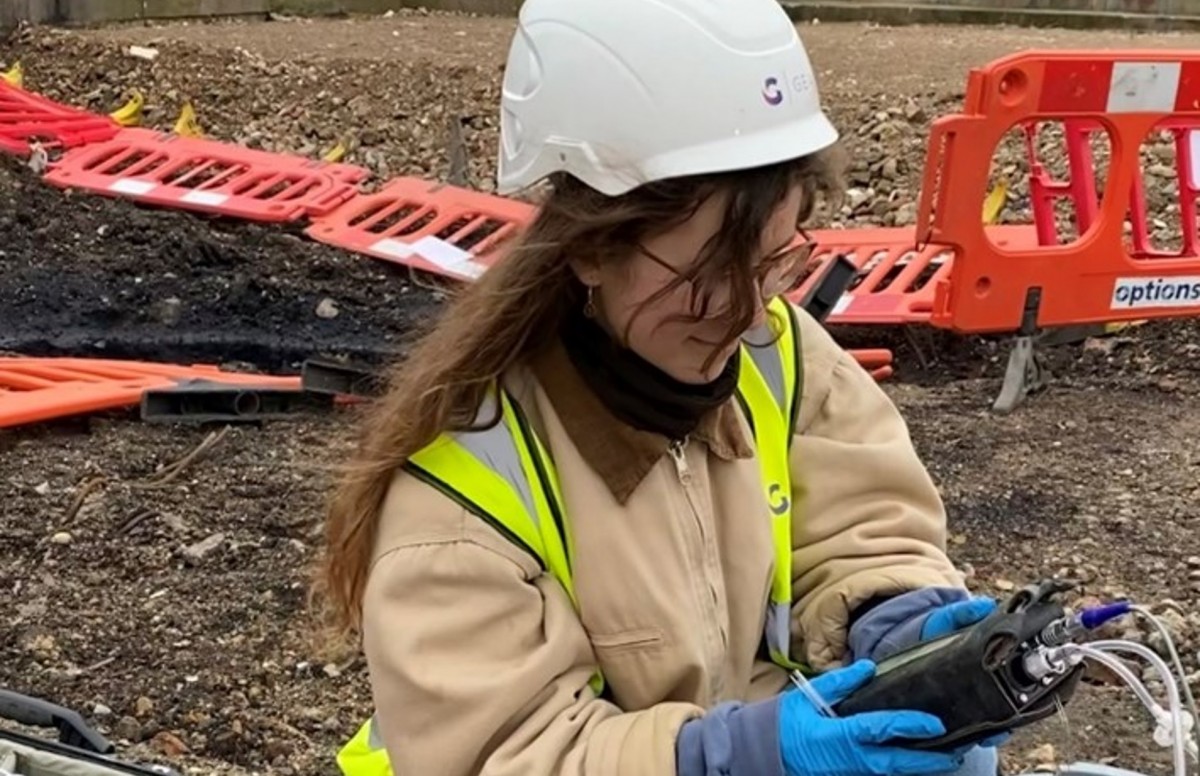The Ultimate Guide To Geotheta
The Ultimate Guide To Geotheta
Blog Article
More About Geotheta
Table of ContentsThe Facts About Geotheta UncoveredExamine This Report about GeothetaThe 9-Second Trick For GeothetaUnknown Facts About GeothetaGeotheta Can Be Fun For Anyone

They carry out website examinations, collect samples, execute lab tests, and assess information to evaluate the suitability of the ground for construction jobs - Consulting Engineer. Based upon their findings, geotechnical engineers provide referrals for structure style, incline security, keeping structures, and reduction of geotechnical risks. They team up with various other specialists, such as engineers, structural designers, and building and construction teams, to guarantee that geotechnical considerations are integrated right into the overall task style and implementation
By analyzing the behavior and residential properties of soil and rock, they can determine prospective geotechnical hazards such as landslides, soil negotiation, or slope instability. Their expertise helps protect against failures or accidents that might threaten lives and building. Here are some thorough obligations and responsibilities of a geotechnical engineer: Site Investigation: Geotechnical engineers conduct website investigations to collect information on subsurface problems.
They interpret the data to recognize the buildings and habits of the dirt and rock, including their stamina, permeability, compaction features, and groundwater conditions. Geotechnical Evaluation and Style: Geotechnical designers evaluate the information collected during website examinations to analyze the stability and suitability of the site for building and construction tasks. They do geotechnical computations and modeling to review factors such as bearing capability, settlement, slope security, side earth pressures, and groundwater flow.
Everything about Geotheta
Structure Layout: Geotechnical designers play a crucial duty in developing foundations that can safely sustain the desired structure. They assess the soil conditions and tons requirements to determine the ideal foundation kind, such as superficial foundations (e.g., footings), deep foundations (e.g (https://geotheta.edublogs.org/2024/08/02/unlocking-the-world-of-geotechnical-engineers-with-geotheta/)., stacks), or specialized techniques like soil improvement. They take into consideration factors such as negotiation limits, birthing capability, and soil-structure interaction to create optimal structure layouts
They review construction strategies, screen website activities, and perform area examinations to verify that the layout recommendations are followed. If unforeseen geotechnical issues arise, they analyze the scenario and provide recommendations for remediation or adjustments to the style. Threat Assessment and Mitigation: Geotechnical engineers examine geotechnical dangers and threats linked with the project website, such as landslides, liquefaction, or dirt disintegration.

Cooperation and Interaction: Geotechnical engineers function closely with other specialists entailed in a task, such as designers, structural designers, and building teams. Efficient interaction and cooperation are necessary to incorporate geotechnical factors to consider into the total job layout and building procedure. Geotechnical designers give technological know-how, solution inquiries, and guarantee that geotechnical requirements are met.
What Does Geotheta Mean?
Below are some sorts of geotechnical engineers: Foundation Designer: Structure engineers specialize in creating and analyzing foundations for structures. They analyze the soil conditions, tons demands, and website qualities to identify the most ideal foundation type and style, such as shallow foundations, deep structures, or specialized methods like pile structures.
They examine the factors influencing incline stability, such as dirt homes, groundwater problems, and incline geometry, and develop techniques to avoid slope failings and mitigate risks. Quake Designer: Quake engineers concentrate on assessing and designing structures to endure seismic forces. They assess the seismic threat of a site, examine dirt liquefaction potential, and develop seismic design criteria to make sure the security and strength of structures throughout quakes.
They perform field screening, gather examples, and examine the accumulated data to characterize the soil buildings, geologic formations, and groundwater conditions at a website. Geotechnical see page Instrumentation Designer: Geotechnical instrumentation designers concentrate on surveillance and determining the actions of soil, rock, and frameworks. They set up and maintain instrumentation systems that keep an eye on aspects such as soil negotiation, groundwater degrees, slope activities, and structural variations to evaluate efficiency and offer early cautions of prospective issues.
The 5-Second Trick For Geotheta
They carry out tests such as triaxial examinations, debt consolidation examinations, direct shear examinations, and permeability examinations to gather information for geotechnical evaluation and style. Geosynthetics Designer: Geosynthetics designers concentrate on the design and application of geosynthetic products, such as geotextiles, geogrids, and geomembranes. They use these materials to boost soil security, enhance inclines, provide drain remedies, and control disintegration.
They tend to be investigative people, which means they're intellectual, reflective, and analytical. They are interested, methodical, reasonable, analytical, and sensible. Some of them are likewise social, meaning they're kind, charitable, participating, individual, caring, valuable, compassionate, skillful, and pleasant - Geo Tech Engineering.
In the workplace environment, geotechnical engineers make use of specialized software program devices to carry out estimations, produce styles, and evaluate data. They prepare records, testimonial job specs, interact with clients and staff member, and coordinate job tasks. The office setup offers a helpful environment for research, analysis, and partnership with various other specialists entailed in the job.
The Ultimate Guide To Geotheta
They regularly see project websites to carry out site investigations, assess geotechnical problems, and gather information for analysis. These brows through involve taking a trip to various places, sometimes in remote or difficult surfaces. Geotechnical engineers might execute dirt tasting, conduct examinations, and display building tasks to make certain that the geotechnical aspects of the job are being carried out appropriately.
Geotechnical engineers also work in specialized geotechnical research laboratories. Geotechnical laboratory designers work thoroughly in these atmospheres, handling testing tools, running tools, and recording information.
Report this page